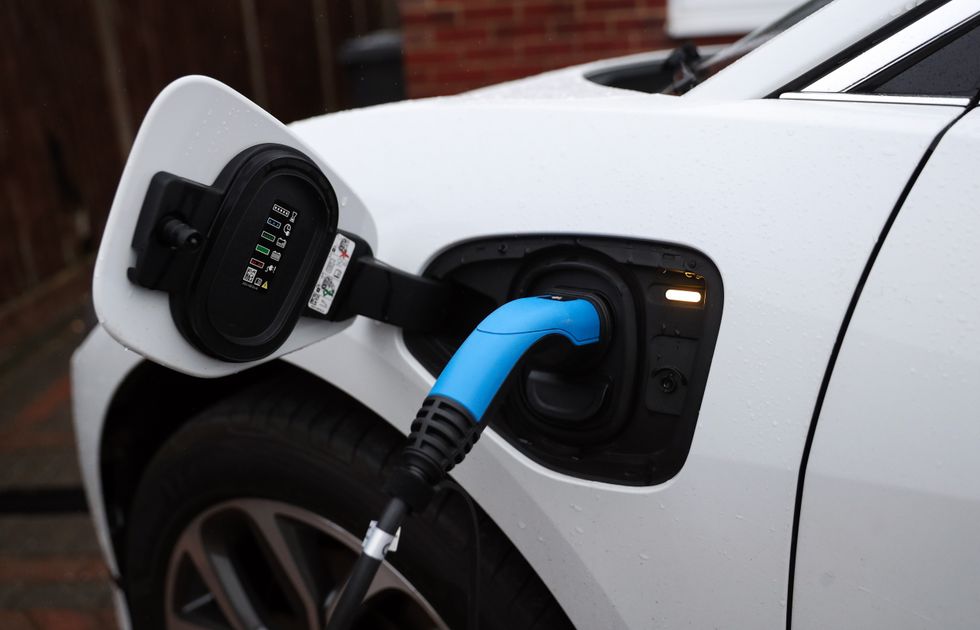Drivers could be at risk of burns with the EV plug overheating
GETTY
There are calls for stricter regulations for third-party sellers to check the products they sell
Don't Miss
Most Read
Trending on GB News
Experts are calling for an urgent review of the dangers of electric vehicle charging cables purchased online, with further demands for tighter regulations.
A new investigation has found some aftermarket EV charging cables could pose a risk of overheating and electric shocks for drivers.
The research, from What Car?, tested three “Mode 2” chargers which allow motorists to charge their electric cars using a standard three-pin domestic socket and compared to British and European safety standards.
Each cable underwent five different tests, with two cables failing all five of the Residual Current Device (RCD) tests, and one cable only passing one test.
WATCH NOW: Labour MP Steve Reed on electric cars
The RCD tests are designed to switch the electricity off automatically if a fault is detected, with there being a serious risk of electric shock to anyone using it if a failure occurs.
The cables were purchased through online marketplaces, namely Amazon and a technology sales website, with third-party online marketplaces not legally obliged to check the safety of the products they sell.
In addition to the safety issues with the potential for electric shocks, none of the plugs fit properly into a standard UK power socket, meaning there is a risk of it overheating.
Because of this, experts are calling on the Government to introduce stricter legislation on the sale of electric goods, like EV chargers, via online marketplaces.
Claire Evans, What Car? consumer editor, said: “Our tests show how easy it is to buy unsafe EV charging cables online.
“Our investigation highlights the importance of choosing electrical products with care and we recommend buying from reputable high street or online retailers.
“We believe stricter regulations for third-party sellers are needed.
“They should check that products meet the relevant standards up front, rather than retrospectively, following a complaint or investigation.”
All three of the cables tested are designed to run at more than 13 amps, but the plugs were only rated up to 13 amps.
While the increased current is unlikely to blow a fuse, it will generate additional heat and could make the plug hot enough to burn someone, if plugged in for a long time.
Visual tests were also included to assess the safety labelling and to determine how tamper resistant it was, with the cables having poorly worded safety information.
There was also a lack of information about their level of water resistance which is a major factor given that most charging is done while the vehicle is exposed to the elements.
Instructions were also only included in the two cables from Amazon, which cost £169 and £130 respectively, while the other charger would set drivers back £108.
Following the investigation, all three chargers were deemed to be unsafe for use when charging an electric car.
LATEST DEVELOPMENTS:

All three of the 'unsafe' cables cost more than £100
PA
Amazon confirmed it had removed two of the cables from its site while investigating What Car?’s findings, while the technology sales website did not respond.








